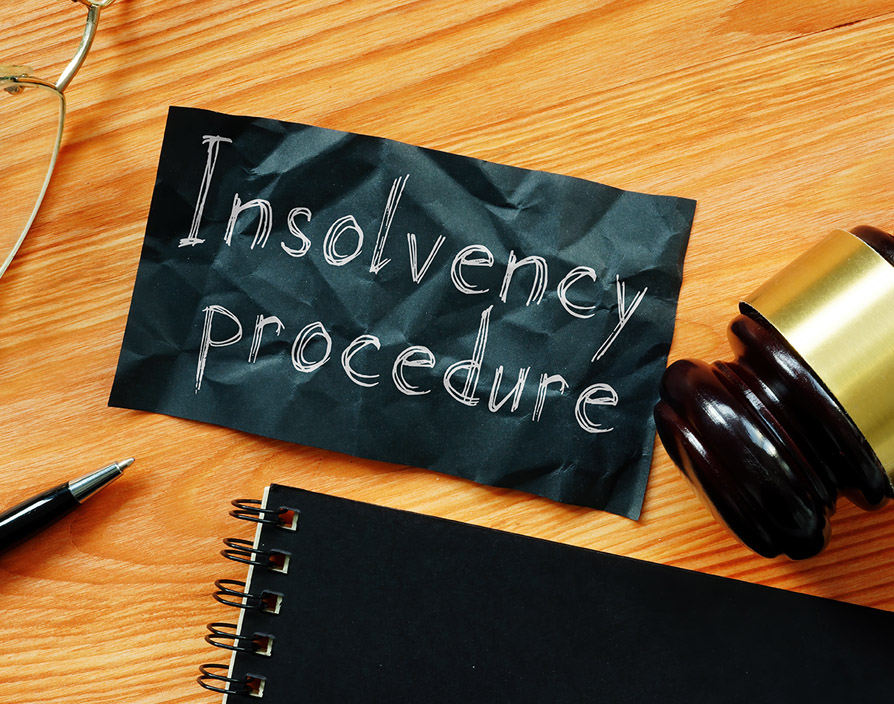Although franchising is typically a more robust business model than many others, it is still not immune to the wider economic and sectoral pressures. The recent demise of The Body Shop, which is currently in administration, is one high profile example of this.
If the worst happens, and a franchisor or franchisee becomes insolvent, it will almost certainly cause disruption. However, this does not necessarily mean the outcome is terminal. In April’s feature, we consider some of the key considerations for both franchisors and franchisees, should insolvency strike.
Insolvency of a franchisee and the franchisor’s perspective
In the event of a franchisee’s insolvency, the franchisor’s focus will be on minimising reputational damage. They need to ensure that the business continues to trade, if possible, while minimising or recouping any financial loss.
By effectively monitoring the financial health of their business partners, franchisors are better placed to notice any early warning signs of distress. This will enable franchisors to act swiftly if a problem arises.
Sale of the franchise
The insolvency of a franchisee risks damage to the reputation and goodwill of the brand. It is therefore in the franchisor’s interest to intervene at an early stage and potentially provide support in the hope of weathering the storm. Is it simply a blip? Or should the franchisor seek a new business partner to replace the insolvent franchisee?
Under the terms of the franchise agreement, the franchisor will have substantial control over the sale process. A pre-insolvency sale may offer the best outcome for the franchisor. This should ensure that the purchase price will cover any debt owed to them by the existing franchisee.
Franchisor’s rights in liquidation
There will inevitably be cases where a solvent outcome is not achievable. This may result in a franchise business entering into a creditors’ voluntary liquidation. The franchisor will wish to terminate the franchise, and should ideally take steps to do so before an official liquidator assumes control.
This will avoid falling foul of certain statutory restrictions regarding post-insolvency termination. The liquidator’s function is to secure the assets of the stricken company, and therefore ensure they are distributed to the company’s creditors. Yet termination post-insolvency remains possible, but the franchisor will have to take legal advice as to the grounds for doing so.
During a liquidation process, unsecured creditors are likely to receive only a nominal dividend if anything. Thus, the franchisor will need to consider any potential claims under security, personal guarantee or in relation to the recouping of debt.
Restructuring of a franchisee
Larger franchisees may look to employ a restructuring option, rather than invoke a ‘terminal’ insolvency process such as liquidation. This might mean a ‘pre-pack’ sale in an administration, thus allowing a business to shed unwanted assets and liabilities, and so continue as a going concern under a new corporate vehicle.
Alternative options include a company voluntary arrangement or restructuring plan. Both of these can be used, for example, to exit non-performing sites and/or force a compromise on landlords with regards to rent. In most cases, this is a better outcome for creditors than if a company goes into liquidation.
The franchisor’s support for the business, which emerges post-restructuring, will be crucial. They will therefore be consulted by the franchisee, and have the ability to influence the final restructuring process.
Insolvency of a franchisor and the franchisee’s perspective
Although franchisee insolvency is a more frequent occurrence, franchisor insolvency does happen. And, when it does, franchisees will find themselves in uncertain territory.
Continuation of franchise agreement
A liquidator or administrator of the franchisor is likely to want to retain valuable franchise agreements. This will allow them to sell off these profitable businesses as part of an asset sale. They will therefore be keen to ensure – for the short term at least – that franchisees continue to trade as normal and pay their franchise fees.
Franchisees might be surprised to learn that their franchise agreement does not automatically terminate in the event of the franchisor’s insolvency. In fact, most agreements do not include an express right for the franchisee to terminate their business, should a franchisor become insolvent.
It might still be possible for a franchisee to terminate under common law but this too is not without risk. This may even place the franchisee in breach of the agreement, leading to a claim for damages from the liquidator or administrator.
Going it alone
If the liquidator or administrator were to agree to a termination of the franchise agreement, the franchisee would then be faced with a new problem. Should they try to carry on their business as an independent?
The franchisee will no longer be able to use the franchisor’s system, trademarks or any other intellectual property. They will need to re-brand their business completely.
The insolvency practitioner will seek to recover any of the franchisor’s assets which have not been fully paid by the franchisee. And the franchisee may need to renegotiate agreements with suppliers, or potentially source new ones.
However, a franchisee, or a group of franchisees, may be in a strong position to purchase the insolvent franchisor’s assets. This will include trademarks, or the operation manual, and possibly at a favourable price. For affluent businesses, this could emerge as a great opportunity in adversity for franchisees.
A new franchisor
Franchise agreements typically allow the franchisor to assign the agreement to another party without the franchisee’s consent. The franchisee may therefore find that the business has been sold by the administrator or liquidator, resulting in a new franchisor taking control.
This could even take place before franchisees become aware of the original franchisor’s insolvency. The impact of this will depend very much on the opinion of the buyer.
The purchaser (new franchisor) may bring changes to working practices and fees, in an attempt to turn the business around. If the purchaser is a competitor of the existing business, then the franchisee may even be compelled to undertake a complete rebranding of their operation. The new owner may also install a different operating system.
On the positive side, franchisees may discover that the new franchisor brings greater energy and investment to the business. If the franchisee does not wish to continue, there may be restrictions with regards to terminating the agreement. If the full term of the agreement has not yet been completed, they may have to seek a purchaser for their franchised business.
Guest Co-Author Helen Martin
Helen Martin is a managing associate in Stevens & Bolton’s restructuring and insolvency team. Helen acts on a broad range of restructuring and insolvency matters, including acting for secured creditors and insolvency practitioners in relation to formal insolvency processes and distressed business sales, and advising directors on their duties to company and creditors.





































